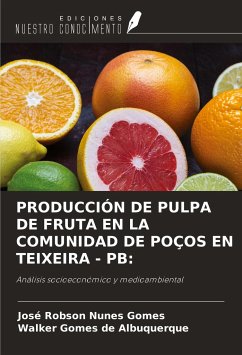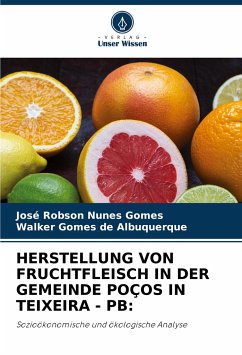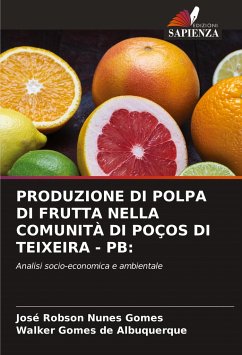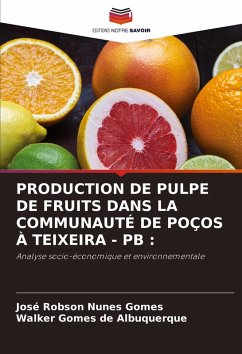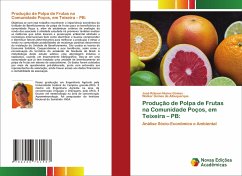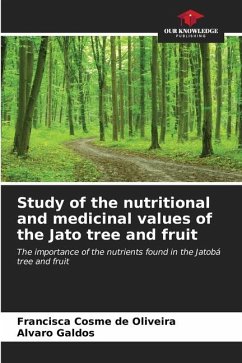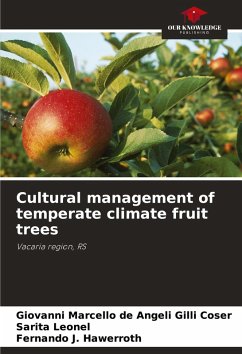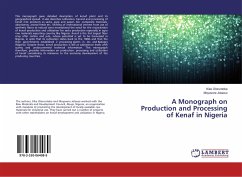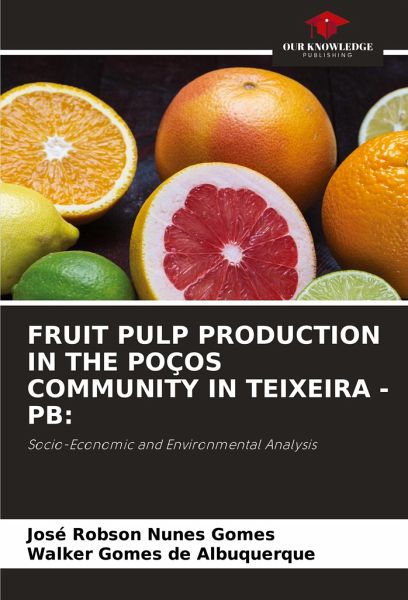
FRUIT PULP PRODUCTION IN THE POÇOS COMMUNITY IN TEIXEIRA - PB:
Socio-Economic and Environmental Analysis
Versandkostenfrei!
Versandfertig in 6-10 Tagen
29,99 €
inkl. MwSt.

PAYBACK Punkte
15 °P sammeln!
The aim of this work was to recognize the economic importance of the fruit pulp processing unit for the beneficiaries of the Poços community and, in addition to establishing criteria for evaluating the income of those associated with the activity studied, it will also promote an analysis of the improvements that have led to environmental preservation in line with international standards, as well as identifying and seeking to understand determining factors for improving production and raising income in the community, possibilities for positive changes resulting from the installation of the pro...
The aim of this work was to recognize the economic importance of the fruit pulp processing unit for the beneficiaries of the Poços community and, in addition to establishing criteria for evaluating the income of those associated with the activity studied, it will also promote an analysis of the improvements that have led to environmental preservation in line with international standards, as well as identifying and seeking to understand determining factors for improving production and raising income in the community, possibilities for positive changes resulting from the installation of the processing unit. The theories of Solidarity Economy, Cooperativism and its trends are used, as well as the conceptualization of the semi-arid territory of Northeast Brazil. The methodology of this study adopted an inductive and explanatory approach, using a bibliographic survey. It took place in a community that already has a fruit pulp processing unit set up in an associative system. Data was collected using a pre-prepared questionnaire, together with interviews with the association's representatives, and access was also gained to the association's financial and accounting data.





